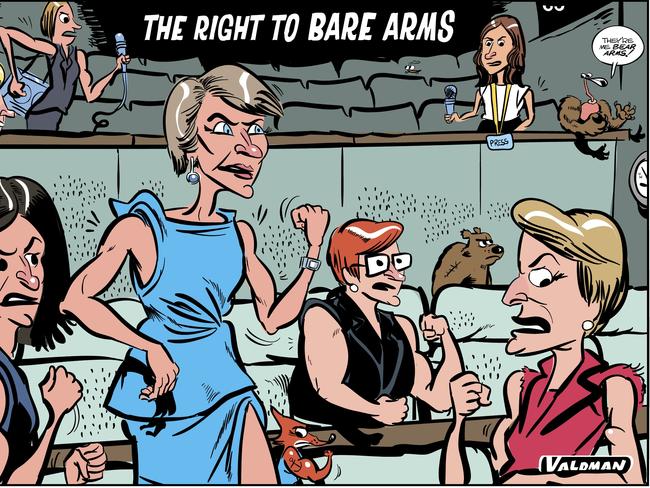The Advertiser editorial, December 5, 2018: Let monster’s penalty set the standard
We expect our courts to deliver justice but all too often it seems their sentences are out of touch with community expectations and their penalties do not reflect public opinion.

Opinion
Don't miss out on the headlines from Opinion. Followed categories will be added to My News.
We expect our courts to deliver justice but all too often it seems their sentences are out of touch with community expectations and their penalties do not reflect public opinion.
It was heartening then to see two brave brothers, known as “A” and “B”, receive justice in the District Court yesterday after 30 years.
Vivian Frederick Deboo, who abused them in the 1990s and turned them against both their parents and their church, was jailed for more than six years.
He will not be eligible to seek release on parole until March 2024, when he will be at least 80 years old.
On first look, six years’ jail for ruining the lives of two men and their family may seem insufficient. But Judge Simon Stretton clearly prioritised both the safety of the community and its expectation of appropriate punishment when sentencing Deboo.
“In my opinion, a life sentence would be true justice,” B said outside court. “However, in the legal and legislative reality in which we live, this was a harsh sentence and a powerful deterrent.”
Compared with other sentencing outcomes, B is of course correct.
Contrast Deboo with the Supreme Court’s decision to release sex predator Colin Charles Humphrys — despite his inability and unwillingness to control his predatory sexual instincts.
Or former teacher Malcolm Fox, who in 2011 received a $1000 good behaviour bond for offending against a vulnerable 17-year-old male student.
A year later, former children’s entertainer Ric Marshall was given a 25-year term for child sex offending — but, unlike Deboo, he was allowed to serve that record penalty on home detention.
Deboo’s penalty shows that the law is slowly — even glacially — catching up to how the community has always felt about those who prey upon our most innocent and vulnerable.
It is to be hoped that the conversation A and B have started will continue, here and interstate, and lead to many more sentencing outcomes worthy of acclaim.
Reform councils
WHEN more than 100 people are elected to local government with fewer than 100 votes, then it’s difficult to claim councils are broadly representative of the public.
This is not the fault of the candidates. Good luck to them if they can be elected with just 11 votes, like one man at Streaky Bay Council.
Rather, it is the fault of a system which is in desperate need of reform. Councils are responsible for important services. Elected members oversee multimillion-dollar budgets and the hiring of well-paid CEOs.
Yet it is fanciful to suggest that a councillor has a mandate from the community when elected with such a minuscule amount of votes.
The pretence that local government elections were free of party politics began to be eroded at the recent poll. A swath of party-aligned candidates emerged, even if the major parties denied involvement in campaigns.
All this points to the need for change, to ensure the arm of government that is supposed to be closest to the people is sufficiently representative and in touch with relevant communities.
This is the challenge ahead for both local and state governments.


